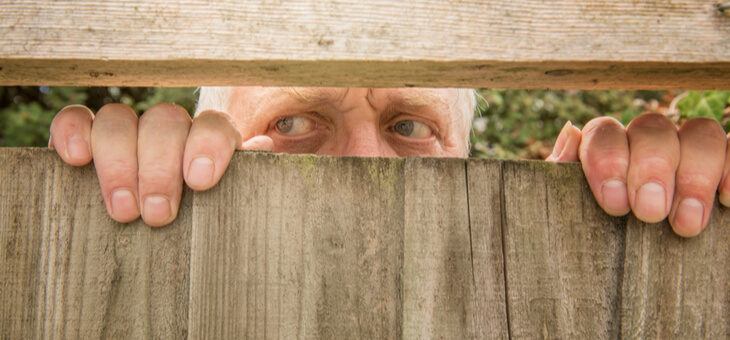It’s been well over a year since terms such as ‘social distancing’ and ‘quarantine’ became a part of our everyday language. So, 10 months after ‘iso’ was coined word of the year, how neighbourly are Australians feeling?
Research from Compare the Market reveals that almost one in five Aussies don’t know their neighbours at all. Some even go out of their way to avoid them altogether!
In fact, one in four (24 per cent) of the people questioned declared they actively try to avoid interacting with their neighbours. A few even revealed they had gone as far as pretending not to have seen someone to avoid a conversation.
However, just over a quarter (26 per cent) of the respondents reported their neighbours feeling like family, and almost half (46 per cent) consider them good friends.
Read: Being neighbourly could save you money
Neighbour relationships are different to every other relationship in our lives. We live in close proximity with people we often don’t know anything about and overhear some of the most private aspects of each other’s days.
Through the pandemic, these relationships have turned out to be some of the most important ones we’ve had.
Relationships Australia national executive officer Nick Tebbey says the pandemic has been prompting neighbours to reach out to one another to ask for, and offer, support.
“It’s part of the Australian psyche, and we see it in times of crisis like the bushfires and the droughts,” Mr Tebbey said.
“Neighbours and communities want to make sure the most vulnerable people are looked after. “The difference now is we’re all vulnerable with this pandemic.
“I think there’s great cause for optimism to see all these amazing stories of neighbours doing things that are really about building connections with those around them.
“Every day we’re seeing examples of that all over the country.”
The study found that one in three (35 per cent) of participants can name all their neighbours and almost two-thirds (63 per cent) have been inside a neighbour’s home.
An impressive 62 per cent confirmed that they’ve helped a neighbour in need.
Read: How to help a neighbour
Attitudes varied with age, with younger cohorts claiming they’re more likely to dodge interactions (34 per cent), compared to just 8 per cent of people over 65.
Over 65s are also more likely to play an active role in their community, with 88 per cent having a relationship with at least two neighbours and 25 per cent knowing five or more.
Renters are more likely to avoid conversations (32 per cent) than homeowners (20 per cent), and less likely to know the names of their neighbours.
Online neighbourhoods have also expanded in response to the virus, connecting those in distant suburbs, interstate or even overseas.
“We’re seeing a huge uptake of people setting up WhatsApp and Facebook chats to communicate with their immediate neighbours,” says Mr Tebbey. “Technology is the great connector we need right now.”
When asked about the number of acquaintances they have made on their street, the most common response was two or three households (25 per cent and 19 per cent respectively), with some only chatting to one (14 per cent) and others having no relationship with anyone in their area (13 per cent).
Read: How to deal with nosey neighbours
State highlights
Queenslanders are the least likely to say they’d go out of their way to avoid their neighbours (21 per cent) but are also the least likely to describe their neighbours as good friends (43 per cent).
Those in New South Wales are most likely to consider their neighbours as friends (48 per cent) or describe them as “like family” (27 per cent).
People from Western Australia are more likely to ask a neighbour for help (76 per cent) and more likely to have helped a neighbour in need (68 per cent).
South Australians are the most likely to have had a dispute with a neighbour (27 per cent) followed by Victorians and Western Australians (23 per cent).
How well do you know your neighbours? Have you ever had a neighbour from hell? Why not share your thoughts in the comments section below?
If you enjoy our content, don’t keep it to yourself. Share our free eNews with your friends and encourage them to sign up.

